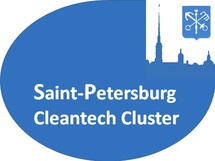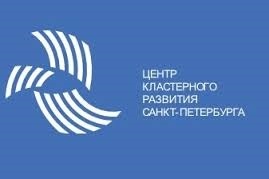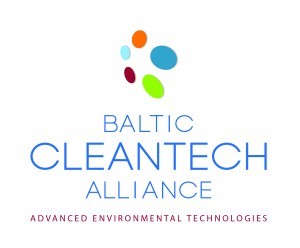June 5 2020. In the course of the XVIII All-Russian Forum “Strategic Planning in the Regions and Citis of Russia” in October 2019, «Saint-Petersburg Cleantech Cluster for urban environment» international consortium initiated the flagship project – “Sustainable Development Cluster 2030”. The project brings together the best practices of sustainable development and the circular economy projects of the “INTERREG. Baltic Sea Region 2014-2020” and the Sub-Program “Southeast Finland-Russia 2014-2020”.
Currently, the total amount of international cooperation projects such as the INTERREG Cross-Border Cooperation Program and the Cross-Border Cooperation Program co-financing of the EU and Russia is more than 97 million euros and 77.5 million euros, respectively. Herein projects involving members of Saint-Petersburg Cleantech Cluster for urban environment international consortium amounted to 23.12 million euros.
“Sustainable Development Cluster 2030” flagship project goal:
To create more innovative, accessible and sustainable Baltic Sea region based on the example of Saint-Petersburg through the implementation of transnational cooperation projects in the Program area.
“Sustainable Development Cluster 2030” flagship project objectives:
To form a joint open innovation international communication platform created in Saint-Petersburg targeted to implement the 17 Sustainable Development Goals (SDGs), including three aspects of sustainable development: social aspects, environmental protection and economy in all countries and regions of this initiative.
The 17 Sustainable Development Goals are indivisible, interdependent and are inherent part of:
- UN 2030 Agenda, including the formation of global economic progress in line with social justice and environmental protection;
- The Baltic 2030 Declaration of the Baltic Sea States Council, including the resumption of the course towards sustainable development in the Baltic Sea Region;
- Environmental Security Strategy of the Russian Federation until 2025, including the environmental security of the Russian Federation, which is recognized as an integral part of national security. The main goal of the strategy is to ensure the quality of the environment necessary for a favourable human life and sustainable development of the economy;
- The Strategy of the socio-economic development of St. Petersburg for 2035, including the provision of a stable improvement in the quality of citizens’ lives and Saint-Petersburg global competitiveness increase.
The present day "Sustainable Development Cluster 2030" flagship project combines 6 projects in the field of sustainable development and circular economy for 11.87 million euros as a total.
1) These are the following projects of the Baltic Sea Region Cross-border Cooperation Program INTERREG RBM 2014-2020:
- Innovation Ecosystem to foster consumer cleantech markets in the Baltic Sea Region (SMARTUP ACCELERATOR),
- Clean Shipping Project Platform (CSHIPP),
- Baltic Industrial Symbiosis (BIS),
- Co-producing and co-financing renewable community energy projects (Co2mmunity).
2) These are the following projects of the Cross-border Cooperation Program “Russia-Southeast Finland 2014-2020”:
- Finnish Russian PPP catalyzing new green business” (Cata3Pult),
- Business in Biotechnology and Circular Economy (BBC1).
"Sustainable Development Cluster 2030" flagship project participate 11 representatives from 3 countries:
Denmark: Kalundborg Symbiosis
Russia: Members of «Saint-Petersburg Cleantech Cluster for urban environment» Consortium, including NP City Association of Homeowners, LLC KOSMOS, LLC TYREMEN GROUP and St. Petersburg Foundation for SME Development; as well as Corporate Center of ITMO University, and State Company «Mineral».
Finland: City of Lappeenranta, Green Net Finland (member of the international consortium "Saint-Petersburg Cleantech Cluster for urban environment"), Brahea Centre at the University of Turku, and Miksei Ltd Oy.
Project – An innovative ecosystem to stimulate the consumer market for clean technology in the Baltic Sea region (SMARTUP ACCELERATOR)
Total project budget 2.2 million euros.
Project summary:
Today there is a growing interest in environmentally friendly technologies aimed at reducing the environmental impact of the consumption economy, dictated by a lack of resources, rising energy and fuel costs, digitalization (the transition to a digital economy) and automation. The project helps small and medium-sized enterprises, start-ups and service providers in the Baltic Sea region use the business opportunities arising in the field of environmentally friendly technologies through the use of partnership and cultural cooperation models.
Project – Clean Shipping Project Platform (CSHIPP)
Total project budget 1.85 million euros.
Project summary:
The project platform aims to protect the environment and ensure sustainability in maritime transport. It is aimed at improving environmental performance, but at the same time it should guarantee and strengthen the economic profitability of maritime transport in the harsh conditions of global competition. The platform’s activities revolve around two main topics: the environmental effect and the effectiveness of shipping in the Baltic Sea region; net shipping business potential in the Baltic Sea region.
Project – Baltic Industrial Symbiosis (BIS)
Total project budget 2.90 million euros.
Project summary:
The aim of the project is the creation and development of eco-industrial parks, where the waste from one industrial production of a resident of an industrial park becomes raw material for another resident of the industrial park. Project participants will receive a detailed picture of modern best practices for the development of industrial symbiosis in the Scandinavian region. This experience will be used in the formation of industrial symbiosis in Saint Petersburg on the example of the development of the Industrial Park of Clean Technologies for the Urban Environment with the participation of members and partners of the international consortium «Saint Petersburg cluster of clean technologies for the urban environment».
Project – Co-production and co-financing of community-based renewable energy projects (Co2mmunity)
Total project budget 3,15 million euros.
Project summary:
The aim of the project is to create new partnerships for renewable energy ("RENCOP"), which will initiate and support the projects of the resulting "energy communes". The project will accelerate the spread of renewable energy in the Baltic Sea region, improving its adoption and development conditions through energy commune models. The project will promote the processes of democratization and participation in the energy sector and further international cooperation in the Baltic Sea region between all levels of target groups.
Project – The Finnish-Russian PPP is the catalyst for the new Green Business (Cata3Pult)
Total project budget 0,85 million euros.
Project summary:
The project is aimed at expanding the opportunities of those working in the field of clean technologies for SMEs in the program region, as well as at creating new business opportunities and international intercluster cooperation for the development of a sustainable urban environment. Project activities include the creation of a structure and an operational model for a sustainable and long-term Russian-Finnish public-private partnership in the development of green business. Work in the project is focused on environmentally friendly technologies, circular economy, energy efficiency and sustainable development in South Karelia (Lappeenranta), Uusima (Helsinki, Vantaa) and Saint Petersburg
Project – Business in Biotechnology and Circular Economy (BBC1)
Total project budget 0.92 million euros.
Project summary:
The aim of the project is sustainable economic growth through the development of entrepreneurship and business cooperation in the field of biotechnology and the circular economy. The main activities of the project include the creation of the concept of cross-border training in a number of business areas, as well as the development of the commercialization of research results and acceleration of spin-offs of companies and startups. The project also develops the digital concept of the RDI EcoSairila platform for testing, studying and piloting innovative ideas and new technologies.
“Saint-Petersburg Cleantech Cluster for urban environment” international consortium was created in October 2014 and today unites enterprises and organizations of Russia (Saint-Petersburg, Leningrad, Kaliningrad, Pskov, and Kurgan Regions, Republic of Tatarstan), Finland, Norway, Denmark, Japan and the Dominican Republic. The cluster has offices in Moscow, Kaliningrad, Leningrad, and Pskov regions, the Republic of Tatarstan and abroad: Finland, Norway, Japan, Italy, Croatia, North, Central and Latin America.
The management company is Noncommercial Partnership «The St. Petersburg House Property Owners Association». The number of participants is 64, including 40 SMEs.
Total revenue is more than 20 billion rubles on the territory of Saint-Petersburg in 2019.
The average number of employees of the organization is 44.5 thousand people in 2019.
The Cluster’s mission is to make Saint Petersburg an environmentally friendly and safe city to live in, combine clean technologies in all sectors of the city’s economy and its supply chains.
Cluster subject areas:
energy conservation, energy efficiency, smart city / smart grids, green building / eco house, waste management, urban transport, IT for clean technologies, clean production processes in an urban environment, biofuels, solar and wind energy.
The cluster is a member of:
- The Global Cleantech Cluster Association (GCCA), which brings together 55 national clean technology clusters representing more than 10,000 Cleantech companies around the world;
- BALTIC CLEANTECH ALLIANCE, clusters of the Baltic Sea region: Finland, Latvia and Russia;
- All-Russian cluster association Green Clusters of Russia
State support for the cluster is provided by the Center for Cluster Development of Saint-Petersburg as a part of Cooperation Agreement with Technopark of Saint Petersburg JSC dated 07.07.2015.
Today 14 SMEs – members of the Cluster – are also residents of the business incubator INGRIA JSC Technopark of Saint Petersburg, which is 41% of the total number of SMEs.
SMR Clusters – residents of INGRIA are the leaders in urban cluster projects: LLC INNOKOR – the leader of the Effective Light project, LLC ENVIRO – the leader of the ECOLAND and Reserve Heat from Waste projects, and LLC TYREMAN GROUP- the project leader of “Clean Technologies in Transport” and “Clean Technologies Park”. Moreover, SME Cluster – residents of INGRIA actively participate in international projects. The Baltic Industrial Symbiosis project involves TYREMAN Group LLC, which creates the first Living Laboratory and General Development Group LLC in Russia with the project “The Northern Shrimp” as a participant in the screening for the formation of industrial symbiotic chains in the NWFD of the Russian Federation”.
For further development of "Saint-Petersburg Cleantech Cluster for urban environment" applied for awarding of the “Ecological Cluster” status (November 2019) in the fulfillment of the the Russian Federation President Order dated May 22, 2019 № Пр-922. Within the framework of the Order the Interdepartmental Working Group, based on the Analytical Centre of the Russian Federation Government, elaborates 10-15 pilot cluster programs which make possible to proceed to active stimulative economic policy by means of compliance with measures represented by the Roadmap «Sustainable development of the Russian Federation economy non-oil and gas sectors».
In May 2020, in order to develop the market of clean technologies in Russia "Saint-Petersburg Cleantech Cluster for urban environment" applied for participation in a working group to create a new global technology market, Econet, as a part of The National Technological Initiative of Russia (NTI). NTI is a long-term interdepartmental public-private partnership program aimed to promote the development of new promising markets based on high-tech solutions that will determine the development of the global and Russian economies on the horizon until 2035 and beyond. Organizers of NTI: NTI Platform (a non-profit organization created to engage people in the development of companies that seek to become leaders in fundamentally new technology markets), University 20.35 (University 20.35 was created by the Agency for Strategic Initiatives), RVC JSC (Russian Venture Company), and ASI (the Agency for Strategic Initiatives). Currently within the framework of the NTI the design and creation of new markets is beginning (in addition to the nine approved), which will be carried out in the format of the Foresight NTI 2.0. STI "Econet" is a technology for in-depth analysis and climate control, the creation of experimental and super local climatic zones, restoration of biodiversity, garbage as a resource.
Previously at the X Saint Petersburg International Innovation Forum in 2017 the Cluster signed a memorandum of understanding on the formation of the GreenNet National Technology Initiative in Russia supported by the Finnish Cleantech Cluster and Green Net Finland GreenNet experience. At that stage the priorities of the initiative by the signatories were identified as following: environmental safety and resource efficiency of the urban environment. The focus of this initiative is to promote the development and implementation of “clean” and resource-saving technologies aimed at reducing the human impact on the environment and improving the quality of life of people in cities.
Consolidation of all the Cluster’s initiatives in the field of clean technologies into a circular economy will allow us to analyze global trends, forecast further demand in this market, give recommendations on legislative changes for the development of the green, clean and environmentally friendly technologies market, create a more innovative, affordable and sustainable Baltic Sea region through the implementation of best practices of transnational cooperation projects in the territory of international programs with the participation of Russia.





